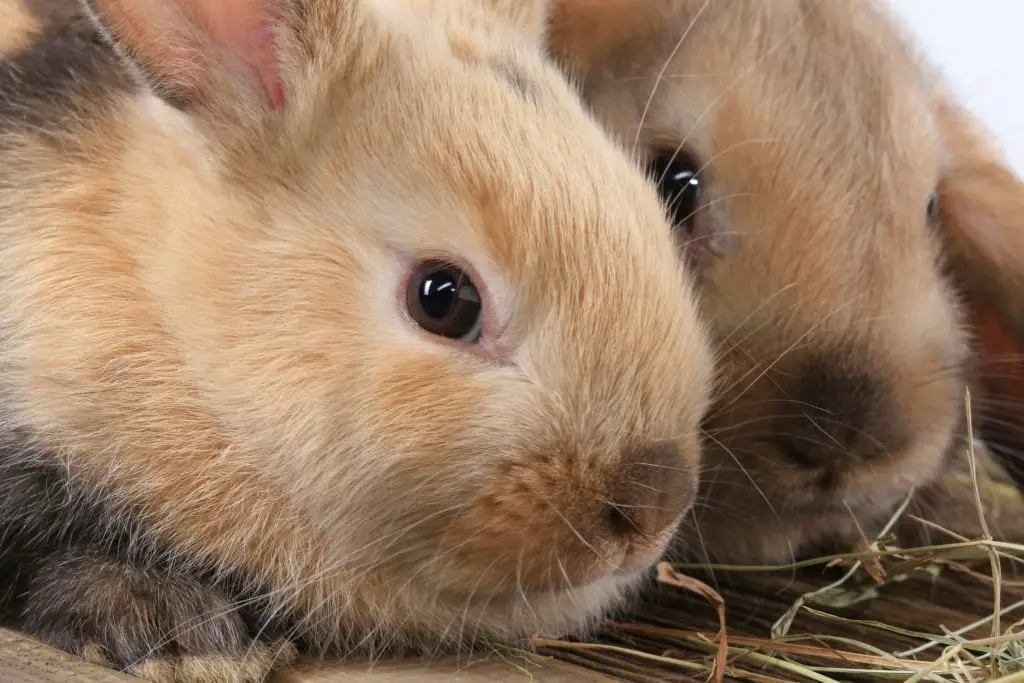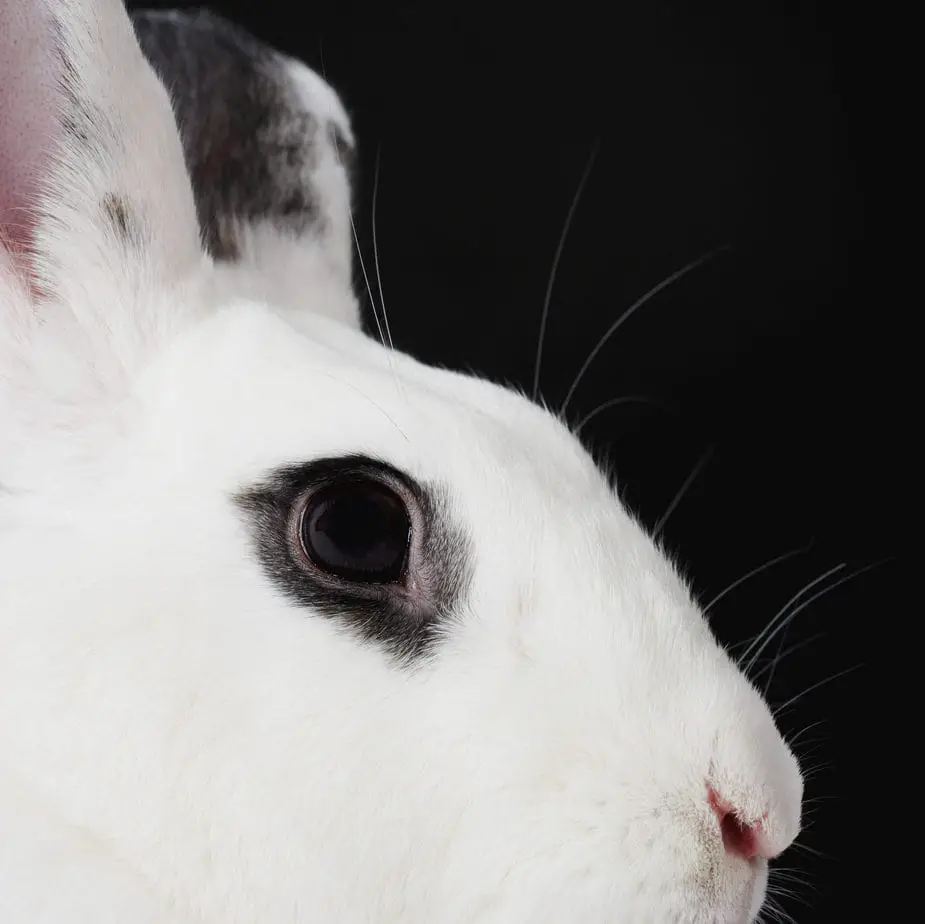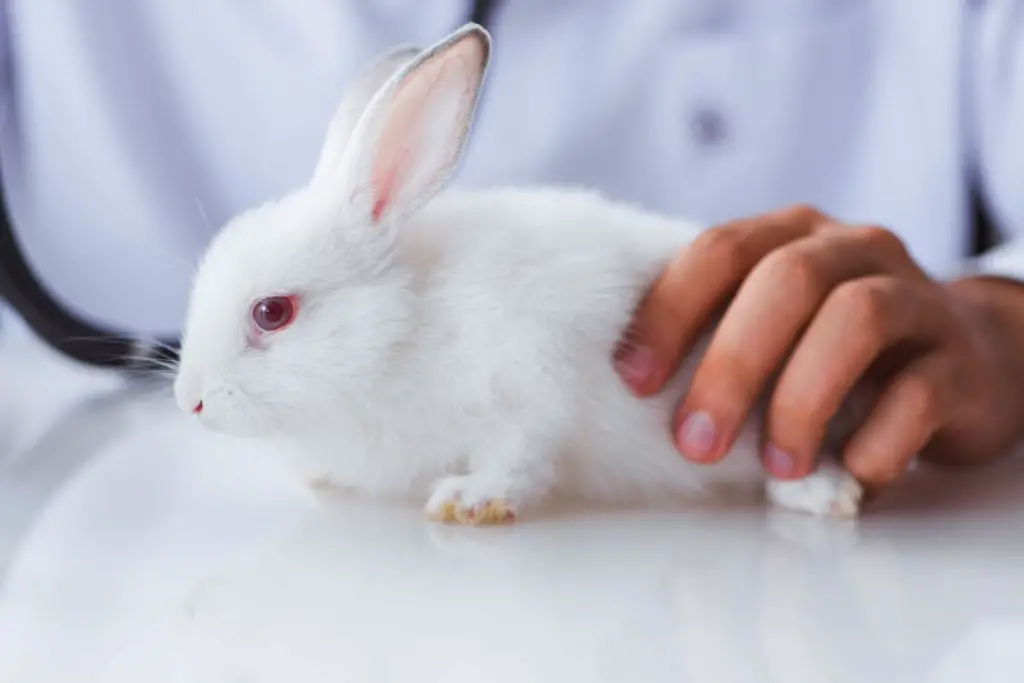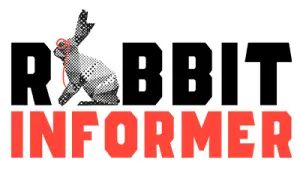
Often you hear people talking about carrots and how good they are for your eyes. Does that mean that rabbits have really good eyesight because they are always eating carrots? Well, not exactly.
Carrots do not benefit rabbits in the way we think they do, rather their eyesight is based more on physiology than diet. Because rabbits are prey animals, they are naturally farsighted, meaning they struggle to see objects that are right under their noses.
There are many other myths about a rabbit’s vision. In this article, we will address those myths and facts with supporting evidence. If you want to understand the way your rabbit views the world around them, keep reading!
Myths About a Rabbit’s Eyesight
Rabbits have binocular vision- Many people believe that rabbits have binocular vision as we do. This is not true. Rabbits have something called monocular vision. This means that they can process both eyes independently. Their eyes do not overlap much which makes it so that their field of view is coming from one of their eyes.
Rabbits see color- This is not entirely true. Compared to humans, rabbits are slightly color blind. Humans have three different color receptors, while rabbits only have two. So, rabbits do see colors, but the colors they see are pretty limited.

Rabbits can see infrared- Rabbits cannot see infrared. They cannot see red light as well as humans because they don’t have any red cones in their eyes.
Rabbits don’t blink- You may not catch your rabbit blinking often, but they do blink. They blink once every five minutes or so. They don’t need to blink as much as humans because they have an extra eyelid. This helps keep their eyes moist for as long as possible, so they can continue looking out for predators.
Facts About a Rabbit’s Eyesight
While there are many myths, there are also many interesting facts that you’ll need to know as a rabbit owner. Knowing these facts will help you best care for your rabbit.
Rabbits have good eyesight- Rabbits do have great eyesight, but it is very different from humans. They can see things further away from them. Their eyesight is perfectly ideal for their purposes, which is looking out for predators.
Rabbits can see in the dark- Rabbits can’t see in pitch black, but they can see in the dark considerably well. Their eyes are adapted to work best at dusk and dawn. They are not completely adapted to see at night though. They can see in the dark a lot more than humans can. Their rod photo-receptors help them see in poor light conditions.
Rabbits can see nearly 360 degrees- Because a rabbit’s eyes are located high on the sides of the skull, they can see nearly 360 degrees around them. They can also see far above their head. But, because rabbits’ eyes are on the sides of their head, they have a small blind spot directly in front of their face.
Rabbits can see behind them- As crazy as it sounds, rabbits really can see behind themselves. They can do this because of the position of their eyes on their head.
Rabbits sleep with their eyes open- Rabbits often sleep with their eyes open. Because rabbits are considered prey in a wildlife setting, they feel more safe leaving their eyes open when they are sleeping in case there are predators around.
Rabbits blink every five minutes- It may be hard to believe, but rabbits only blink 10-12 times an hour. If you compare that to humans, that is 50 times less frequent than human blinks. Rabbits technically have a third eyelid (membrane) that allows them to keep their eyes completely open for long periods of time. The reason for this is so that they can keep their eye out for potential predators.
Think your rabbit may be blind? Having owned my own blind rabbit, I can tell you there are certain differences to look out for and to be aware of. They also require some modifications to every-day life. Check out my article Is Your Rabbit Blind? 8 Ways to Find Out to further care for your furry friend!
Rabbit Eye Care
Rabbits are prone to having a few eye problems. Here are some things to look out for when it comes to the health and care of your rabbit’s eyes.
What does a healthy rabbit eye look like? When your rabbit’s eyes are healthy, they appear clear and bright on the surface, and if you pull up on the eyelid the tissue on the eye should be pink.
Common infections- The most common infections that we find in rabbits’ eyes include conjunctivitis and pasteurellosis.
- Conjunctivitis- Conjunctivitis is something that affects the lining of a rabbit’s eye, while pasteurellosis can lead to eye infections, and mostly affects the respiratory tract.
- Red Eye- Another common infection is red eye. Red-eye is where the blood vessels in your rabbit’s eye swell.
- Corneal ulcers- An ulcer appears when the cornea is scratched or damaged. If your rabbit squints a lot, it may have a corneal ulcer.
- Abscesses- Abscesses from around the head and could appear as a bump under your rabbit’s eye, or result in the bulging of their eye. The cause usually links to dental disease.
Signs of eye infections- One of the first things to look out for is cataracts that might form from something called E. cuniculi, which is a parasite infection. Ulcers can form when the eye is irritated. Another thing to look out for is matted hair on the front of his paws from wiping discharge from his eyes. One of the last things to look for is a red or pink tone around your rabbit’s eye.

Prevention- The first thing you can do to help prevent eye infections is select your rabbit’s bedding carefully. Avoid shavings because they could potentially harm and irritate your rabbit’s eyes. Make sure that your rabbits living and sleeping areas are well ventilated. It’s also recommended to use dust-free hay, and to check your rabbit’s eyes for any signs of infections, each time your handle it.
Your rabbit’s eyes are a vital part of its body so keeping them healthy is critical. If your rabbit shows any signs of these infections, make sure to contact your vet as soon as possible so that you can avoid any further eye infections.
